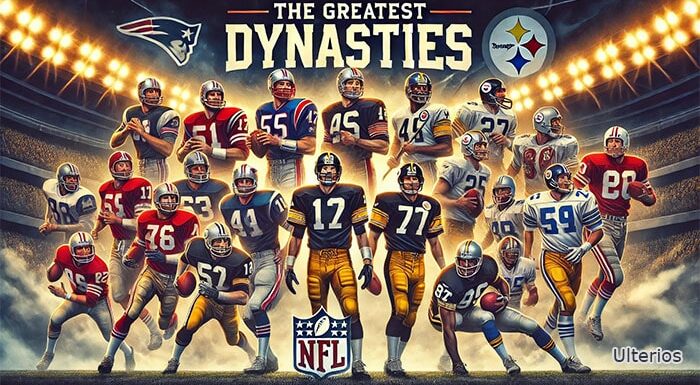
The National Football League (NFL) has been home to some of the most legendary dynasties in all sports history. These dynasties have not only dominated their respective eras but have left an indelible mark on the game itself.
NFL dynasties are often defined by sustained success over a period of several years, a combination of elite talent, masterful coaching, and the ability to evolve and maintain their excellence even as the league changes.
In this article I’ll will explore the greatest NFL dynasties, tracing their rise to dominance, their key players and coaches, and the lasting impact they’ve had on the sport of professional football.
1. Green Bay Packers (1960s)
The first true NFL dynasty was the Green Bay Packers of the 1960s, led by their legendary coach Vince Lombardi. Lombardi’s Packers set the standard for success in the NFL going forward and established the franchise as one of the most storied in the league’s incredible history.
Between 1961 and 1967, the Packers won five NFL Championships, including the first two Super Bowls (Super Bowl I and II).
The core of the Packers dynasty featured legendary Hall of Fame players such as quarterback Bart Starr, linebacker Ray Nitschke, and fullback Jim Taylor. However, Lombardi’s brilliance as a coach was the glue that held everything together and allowed for their long period of success.
His emphasis on discipline, execution, and team unity made the Packers a relentless and usually unstoppable force on the field. Lombardi’s teams were known for their punishing running game, led by the famous “Power Sweep”, and their stout defense, which routinely shut down the opposing offenses.
The Packers’ dynasty not only cemented Green Bay’s place in NFL history but also set the tone for future dynasties. The NFL’s championship trophy (The Super Bowl Trophy) is named in honor of Vince Lombardi, a testament to the lasting legacy of this team.
2. Pittsburgh Steelers (1970s)
The Pittsburgh Steelers of the 1970s are often regarded as one of the most dominant teams in NFL history. Under head coach Chuck Noll, the Steelers won four Super Bowls in a six-year span (Super Bowl IX, X, XIII, and XIV), a feat that had never been accomplished before.
The foundation of the Steelers’ dynasty was their “Steel Curtain” defense, a defensive unit that terrorized opposing offenses and became the symbol of Pittsburgh’s gritty, blue-collar identity.
The defense featured legends such as “Mean” Joe Greene, Jack Lambert, Jack Ham, and Mel Blount, while the offense was led by quarterback Terry Bradshaw, wide receiver Lynn Swann, and running back Franco Harris.
The Steelers were known for their physical, hard-nosed style of play, and they often overwhelmed opponents with their combination of defensive toughness and offensive firepower.
Noll’s steady leadership and ability to draft and develop talent played a significant and pivotal role in the Steelers’ dynasty. His selection of players like Bradshaw, Harris, and Greene through the draft proved to be the backbone of the team’s success.
The Steelers’ dynasty also solidified the franchise’s identity as one of the NFL’s premier organizations, a legacy that continues to this very day.
3. San Francisco 49ers (1980s-1990s)
The San Francisco 49ers, under head coach Bill Walsh, revolutionized the NFL in the 1980s with the implementation of what was called the “West Coast offense”.
This innovative approach to offense relied on short, precise passing routes and the quick release of the quarterback, which often neutralized opposing defenses and their pass rush.
The mastermind behind this strategy was Walsh, but the execution was handled by legendary quarterback Joe Montana, one of the greatest players in NFL history.
The 49ers’ dynasty began in earnest with their victory in Super Bowl XVI in 1982 and continued through the 1980s and early 1990s. The team won five Super Bowls between 1981 and 1994 (Super Bowl XVI, XIX, XXIII, XXIV, and XXIX).
Montana, with his cool demeanor and clutch performances, came to be known as “Joe Cool” and was widely regarded as the best quarterback of his era.
Other key figures in the 49ers’ dynasty included wide receiver Jerry Rice, considered by many to be the greatest player in NFL history, and safety Ronnie Lott, a feared and respected leader on the 49ers defense.
In the latter stages of their dynasty, quarterback Steve Young took over at quarterback for Montana and led the team to their final Super Bowl victory in 1994.
The 49ers’ dynasty was marked not just by championships but also by the innovation and brilliance of Walsh’s offensive system. It reshaped the way football was played and coached, leaving an enduring influence on the NFL and how it is played today.
4. Dallas Cowboys (1990s)
The Dallas Cowboys were the team of the 1990s, winning three Super Bowls in four years (Super Bowl XXVII, XXVIII, and XXX) under head coach Jimmy Johnson and later Barry Switzer.
The Cowboys’ dynasty was built around a trio of future Hall of Famers including quarterback Troy Aikman, running back Emmitt Smith, and wide receiver Michael Irvin, collectively known as “The Triplets”.
The Cowboys dominated the NFL with a balanced offensive attack, featuring Smith’s powerful running style, Aikman’s pinpoint passing, and Irvin’s physical playmaking ability at receiver.
On defense, players like Charles Haley, Darren Woodson, and Deion Sanders (who joined the team in 1995) helped solidify the Cowboys as a well-rounded, dominant force.
Johnson, who took over as head coach in 1989, was instrumental in turning around the franchise. His shrewd drafting and bold trade decisions, including the infamous Herschel Walker trade, brought a wealth of talent to Dallas.
After Johnson’s departure, Switzer maintained the team’s momentum and led them to their third Super Bowl victory of the 90’s in 1995.
The Cowboys’ dynasty of the 1990s restored “America’s Team” to prominence, and their brand of winning football resonated with fans across the country and around the world.
5. New England Patriots (2000s-2010s)
No discussion of NFL dynasties is complete without mentioning the New England Patriots, who redefined success in the modern football era.
Under the leadership of head coach Bill Belichick and quarterback Tom Brady, the Patriots won six Super Bowls between 2001 and 2018 (Super Bowl XXXVI, XXXVIII, XXXIX, XLIX, LI, and LIII) and appeared in nine in total during that time span.
The Patriots’ dynasty was built on a culture of discipline, adaptability, and preparation. Belichick’s ability to scheme against opponents, often exploiting their weaknesses, quickly became legendary.
Meanwhile, Brady, a sixth-round draft pick, developed into arguably the greatest quarterback in NFL history, known for his clutch performances in high-pressure situations often willed the team to victories.
Throughout their dynasty, the Patriots never relied on a single style of play. They could win with a power running game, a pass-heavy attack, or a stout defense.
Key players like tight end Rob Gronkowski, wide receiver Julian Edelman, and linebacker Tedy Bruschi were instrumental in the team’s success, but it was the Brady-Belichick partnership that defined the era itself.
What made the Patriots’ dynasty unique was its longevity. In an era defined by parity and salary cap constraints, the Patriots consistently found ways to reload and remain competitive.
Belichick’s ability to identify underappreciated talent and maximize its potential kept New England at the top of the NFL for nearly two decades.
6. Kansas City Chiefs (2020s)
The Kansas City Chiefs have become the defining team of the 2020s, building their dynasty under the leadership of head coach Andy Reid and star quarterback Patrick Mahomes.
After winning Super Bowl LIV in 2020, their dominance in the AFC was only beginning. The Chiefs, known for their high-powered offense, revolutionary play designs, and Mahomes’ unmatched ability to make plays from anywhere on the field, made the Chiefs one of the most exciting dynasties to watch in NFL history.
Mahomes’ impact has been nothing short of transformative. Known for his arm strength, mobility, and field vision, he has made plays that defy conventional wisdom, cementing himself as one of the NFL’s premier quarterbacks.
With tight end Travis Kelce and wide receiver Tyreek Hill (before his departure in 2022), the Chiefs’ offense consistently ranked among the best in the league.
The Chiefs made back-to-back Super Bowl appearances in 2020 and 2021, winning their second championship in Super Bowl LIV against the San Francisco 49ers and falling just short in Super Bowl LV to Tom Brady’s Tampa Bay Buccaneers.
However, they bounced back, consistently remaining a top contender in the AFC, and won another championship in Super Bowl LVII in 2023 and again winning Super Bowl LVIII in 2024. With Patrick Mahomes leading the charge and Andy Reid at the helm, the Chiefs appear poised for sustained success well into the decade.
Andy Reid, who had previously taken the Philadelphia Eagles to Super Bowl appearances, has flourished in Kansas City. His creativity on offense, blending old-school principles with new-age innovation, has made him one of the most respected minds in all of football.
The combination of Reid’s strategic brilliance and Mahomes’ generational talent makes the Chiefs’ dynasty feel like it’s just getting started.
The Chiefs have set a new standard for explosive offense, and their ability to thrive in clutch situations has made them one of the most feared opponents in the league.
With Mahomes still in his prime and Reid continuing to innovate, the Kansas City Chiefs are positioned to dominate the 2020s and add to their growing legacy.
Conclusion
The greatest NFL dynasties have not only won championships but have shaped the league’s history and influenced the way that the game is played.
From Lombardi’s Packers to Belichick’s Patriots and now Reid’s Chiefs, these dynasties have set the standard for excellence in professional football.
While the names and faces change, the common thread across all dynasties is a relentless pursuit of greatness, an unwavering commitment to team success, and the ability to adapt and evolve with the changing times.
As the NFL continues to grow and new teams emerge as top contenders, the legacies of these dynasties will continue to serve as a benchmark for greatness, inspiring future generations of players, coaches, and fans alike.
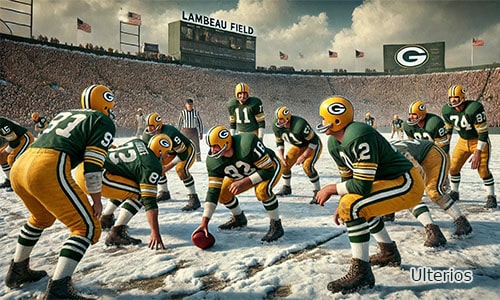
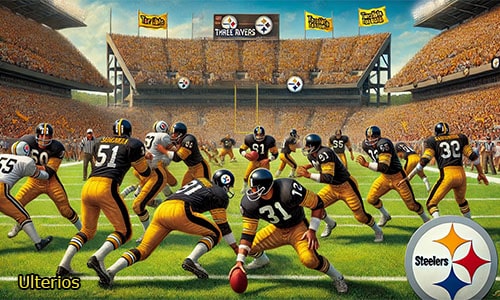

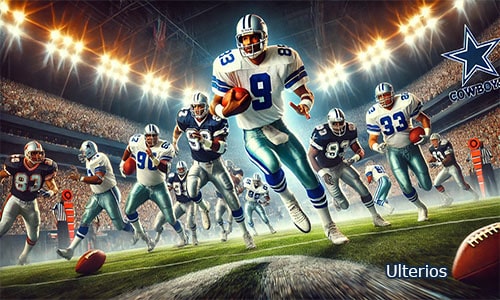
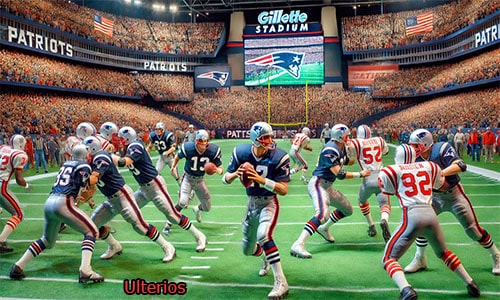
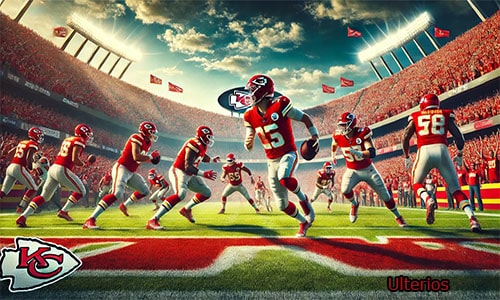

Comments are closed, but trackbacks and pingbacks are open.